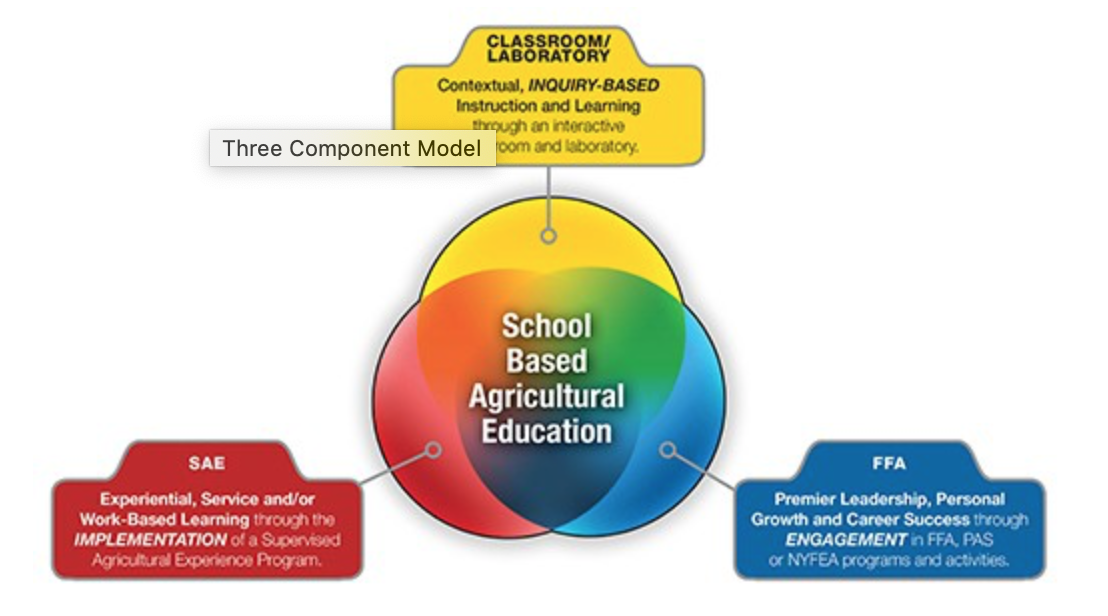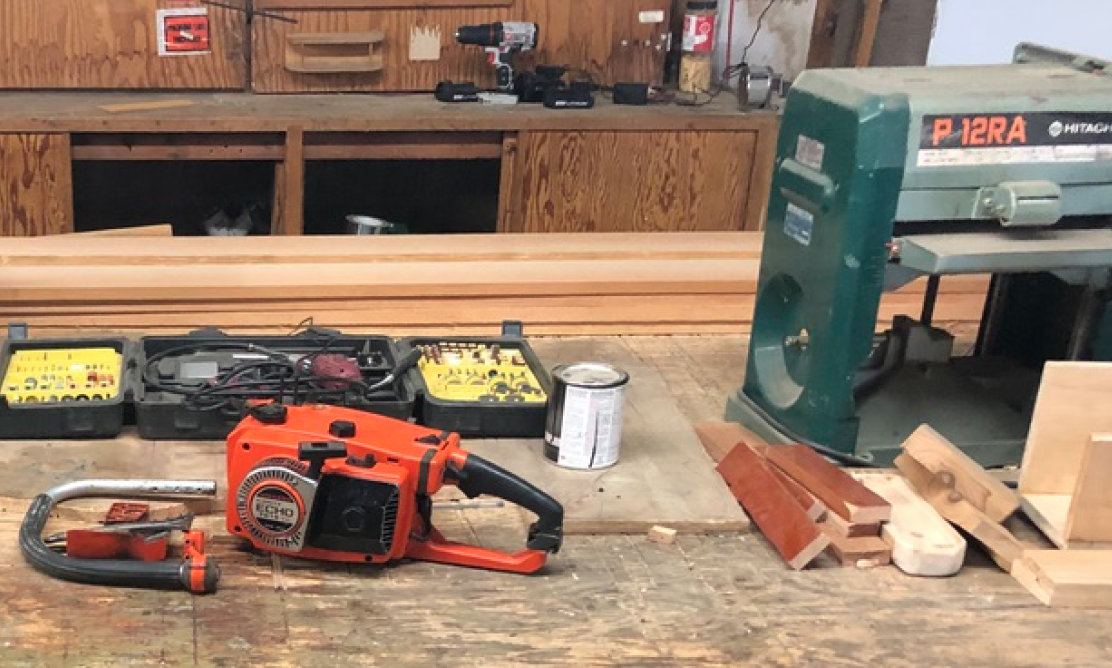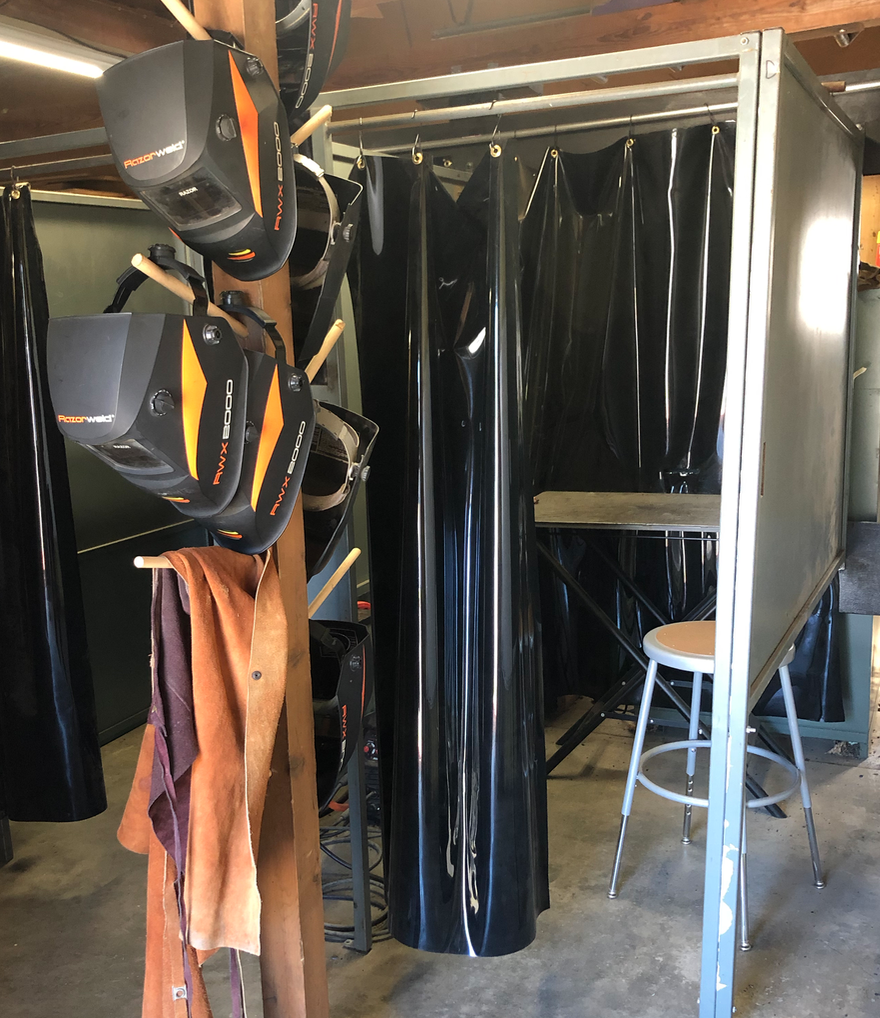Annetta Carey-Fuson, teaching under Covid protocals
From seed, to harvest, to fixing tools, students in Quilcene schools can elect classes that teach them the science of agriculture along with the skills needed for an active farm. Teacher Annetta Carey-Fuson provides instruction of both in her CTE (career technical education) classes.
Beside agricultural science, Annette also teaches agricultural mechanics focused on woodworking and welding. Both skills are highly valued on a farm where new tools are created to solve a problem or current tools must be repaired. Under Annetta's guidance, students gain knowledge in how to use power tools and make welds using Acetylene, TIG, MIG, and ARC welding processes.
CTE classes are unique in that they have an advisory committee made up of parents, students, retired teachers, and community members. The group adds their suggestions to the framework of standards that must be met. A full CTE program is comprised of SAE (Supervised Agricultural Experience) which is student-led, but instructor-supervised work providing measurable results and real-life experiences, traditional classroom instruction, and leadership and career paths as established by the FFA.
This year in the agricultural science class, the corn and bean “seed” is the crop (and not the vegetable). Students are growing varieties which have proven successful in Jefferson county. Instead of eating the results, they'll be saving the seed to expand the crop next year when school is back to full sessions. Along the way they are learning the science behind why some seeds do better than others in our PNW climate. Ag students are also responsible for the planting and maintenance of the new Fork Farm hydroponic system featured in this post. As the world becomes dryer, these water-saving systems could be what a modern farm will employ.
This CTE program is the beginning of knowing how to make a plant or a business grow. For more information, contact Annetta Carey-Fuson.





